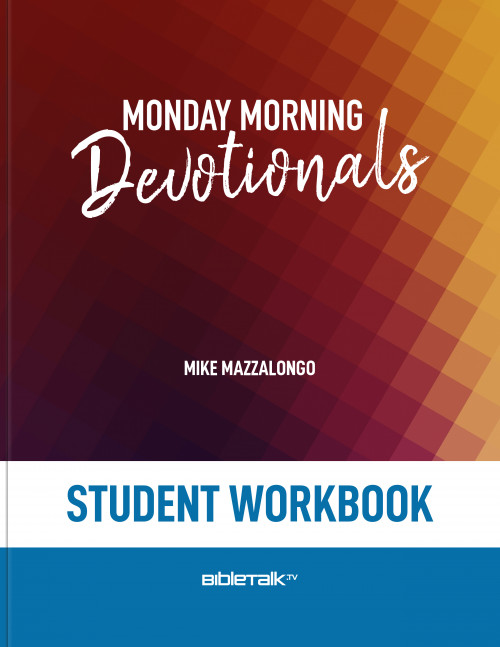Psalm of Suffering
In Psalm 6, David the king of Israel, goes through a range of emotions as he suffers from an undisclosed illness. He writes:
1For the choir director; with stringed instruments, upon an eight-string lyre. A Psalm of David. O Lord, do not rebuke me in Your anger, Nor chasten me in Your wrath. 2Be gracious to me, O Lord, for I am pining away; Heal me, O Lord, for my bones are dismayed. 3And my soul is greatly dismayed; But You, O Lord—how long? 4Return, O Lord, rescue my soul; Save me because of Your lovingkindness. 5For there is no mention of You in death; In Sheol who will give You thanks? 6I am weary with my sighing; Every night I make my bed swim, I dissolve my couch with my tears. 7My eye has wasted away with grief; It has become old because of all my adversaries. 8Depart from me, all you who do iniquity, For the Lord has heard the voice of my weeping. 9The Lord has heard my supplication, The Lord receives my prayer. 10All my enemies will be ashamed and greatly dismayed; They shall turn back, they will suddenly be ashamed.
- Psalms 6:1-10
Notice the various issues he is dealing with:
Vs. 1 – Fear because he thinks that his suffering is some kind of punishment from God because of his sins.
Vs. 2-3 – Impatience because he prays for healing but healing does not come and he asks impatiently, "How long... will I have to suffer...?"
Vs. 4-5 – Bargaining. He promises to continue worshipping God if he is healed. He reminds God that if he dies, he will not be able to give thanks anymore.
Vs. 6-7 – Depression. He complains that nothing he does brings satisfaction. He is reduced to weeping and despair, there seems to be no hope.
Vs. 8-9 – Joy. Suddenly, he is cured and restored and feels vindicated and relieved that God has heard his prayers at last.
Vs. 10 – Confidence. Now that he is well again, he is ready to deal with his enemies, ready to put them to shame for their disbelief and attacks while he was in a weakened state.
This is what scholars call a "suffering psalm or prayer" and is quite helpful to us who suffer from various aches and pains whether they are physical, social, psychological or spiritual. Here are a few lessons to draw from this Psalm:
A. To suffer is human
More than 2500 years ago this man suffered the exact same emotions that we do today when faced with trouble or illness: fear, anger, depression, bargaining, joy, etc. This should help us realize that what we are going through is not new but actually part of normal human existence. We should not feel overwhelmed or unique or defeated or think no one understands, because everyone suffers, and they do so in pretty much the same way.
B. There is not always a quick fix
Here was David, God's special servant and king, chosen by God for this role, and he is going through this terrible time. You see, the severity and length of our suffering is not due to our favor or disfavor with God. Suffering is used and permitted by God for His own purposes in our lives. However, He will not let it continue for one second more than it needs to. We should not be afraid.
C. Stay faithful despite suffering
Even though he experienced different powerful emotions, David never abandoned God. The worse thing that can happen when you are suffering is not that you might lose everything you own or even die. No, the worst thing that could ever happen is that you might lose your faith!
The true test of suffering is not how brave you are or if you get better or not; the true test is if you remain faithful unto death if need be.
Discussion Questions
- Describe a time of suffering in your life and any life lessons you learned as a result.
- What is the most difficult part of suffering for you? How do you manage this?
- Recount the ways you helped another in their time of suffering.





